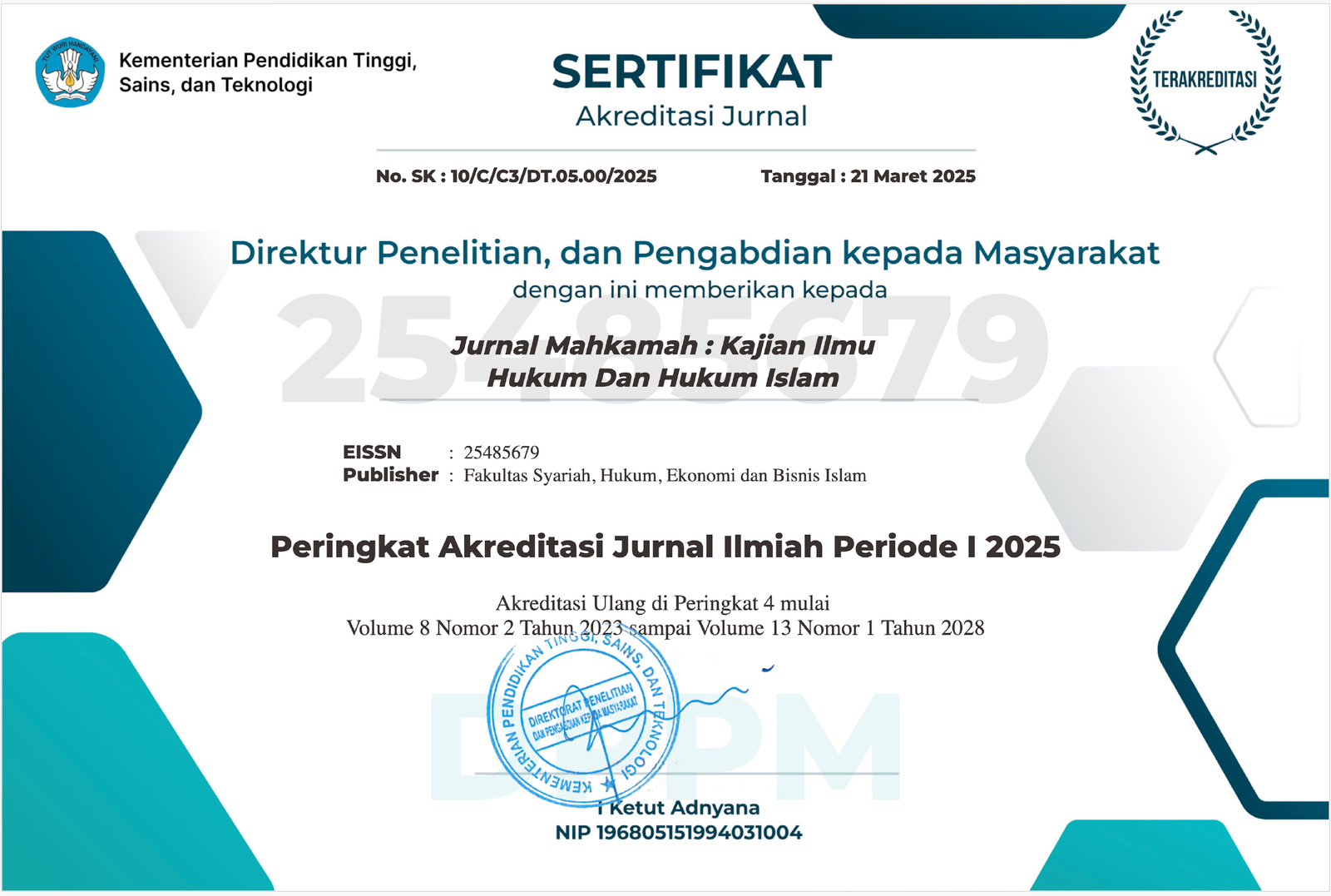The Role of the Namora Natoras Mandailing Traditional Institutions in Forced Marriage in Affairs Cases
DOI:
https://doi.org/10.25217/jm.v7i1.2298Keywords:
adultery; customary law; forced marriage; Namora NatorasAbstract
Forced marriage has no legitimacy in Indonesian marriage law, and is instead categorized as a crime of sexual violence. However, these forms of forced marriage are still common, especially in the case of adultery, as happened in Mandailing, and gain legitimacy from its customary institutions. The purpose of this article is to describe how the role and perception of Namora Natoras in forcing an adulterer's marriage to the principle of consent of the bride and groom. This juridical-empirical research was conducted by collecting data through interviews and other secondary data. The data was processed qualitatively by using content analysis. The results show that Namora Natoras plays an effective role as a customary justice institution in cases of forced marriage in adultery cases, in order to fill the legal vacuum. In Namora Natoras' perception, forcing an adulterer to marry an adulteress is a customary sanction, as an effort to find a balance of nature and provide a deterrent effect, preventing children from being born out of wedlock, a form of repentance, and a form of protection for women to avoid worse perceptions from society. Namora Natoras is of the view that forcing adulterers to marry is more beneficial than upholding the principle of consent of the bride and groom in this case in order to protect the rights of women and children
Downloads
Published
How to Cite
Issue
Section
License
This work is licensed under a Creative Commons Attribution-ShareAlike 4.0 International License.
Authors retain copyright and grant the Jurnal Mahkamah : Kajian Ilmu Hukum Dan Hukum Islam right of first publication with the work simultaneously licensed under a Creative Commons Attribution License (CC BY-SA 4.0) that allows others to share (copy and redistribute the material in any medium or format) and adapt (remix, transform, and build upon the material) the work for any purpose, even commercially with an acknowledgment of the work's authorship and initial publication in Jurnal Mahkamah : Kajian Ilmu Hukum Dan Hukum Islam.
Authors are able to enter into separate, additional contractual arrangements for the non-exclusive distribution of the journal's published version of the work (e.g., post it to an institutional repository or publish it in a book), with an acknowledgment of its initial publication in Jurnal Mahkamah : Kajian Ilmu Hukum Dan Hukum Islam.
Authors are permitted and encouraged to post their work online (e.g., in institutional repositories or on their website) prior to and during the submission process, as it can lead to productive exchanges, as well as earlier and greater citation of published work (See The Effect of Open Access).









